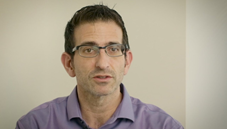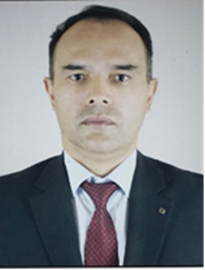Dear friends, we continue our series of publications on the speakers of the Central Asian Climate Change Conference.
Dr Steven Prager, Senior Researcher for Integrated Modeling, International Center for Tropical Agriculture (CIAT) will speak at the Climate Services session.
 Dr Steven Prager, Senior Scientist for Integrated Modeling, International Center for Tropical Agriculture (CIAT)
Dr Steven Prager, Senior Scientist for Integrated Modeling, International Center for Tropical Agriculture (CIAT)
Dr Steven Prager has experience in the industry, government, and academia, and was a professor of geography in Geographic Information Science for ten years prior to coming to CIAT. His current efforts emphasize climate services, climate risk management, and climate-smart agriculture more broadly. Much of Steve’s work involves modeling that integrates across the social, economic and biophysical domains. Steve currently leads a portfolio of bilateral and CGIAR funded research on climate services and co-leads the global initiative on Strategic Foresight for the CGIAR in order to better understand the potential impacts of climate change on the future of the global food system.
In CIAT’s Decision and Policy Analysis research area, Steve co-leads the modelling team, a group comprised of over 20 statisticians, climate scientists, geographers, economists, computer scientists and more. Steve works across all CIAT research areas and regions, and has a strong record of accomplishment in partnership development, mentoring early career staff, and integration across the institution. Steve has a doctorate in geography from Simon Fraser University, where he specialized in sustainable development.
Dr Selvaraju Ramasamy, Climate Change Specialist, Climate Environment Division, FAO, will speak at the session on “Climate Change Technologies and Practices”
Dr Selvaraju Ramasamy, Climate Change Specialist, Climate Environment Division, FAO
Dr Selvaraju Ramasamy is from the FAO Climate Environment Division and currently works at the FAO Regional Office for Europe and Central Asia, Budapest, Hungary. Dr. Ramasamy joined FAO, Rome, in 2007 as an environmental specialist and focused his work on climate change adaptation, disaster risk reduction and the provision of climate information services for agriculture, and food security. Prior to joining FAO, he worked at the Asian Disaster Preparedness Center in Bangkok as a senior scientist and managed climate risk management programs. From 1999 to 2001, he was a visiting fellow at the Australian Center for Applied Research on Climate and Agricultural Production Systems in Queensland. In 1995–2004, Dr Ramasami worked as an associate professor at the Agricultural University of Tamil Nadu (India), where he taught, researched and disseminated knowledge in the field of agrometeorology and coordinated several international and national projects on the application of climate technologies in agriculture. He began his career as a lecturer in October 1990, and then until February 1995, he worked as a research fellow at the Agricultural Research Service (ARS) of the Indian Council for Agricultural Research (ICAR). He has a PhD in agriculture, specializes in agroclimatology and modelling.
 Also at this session, “Technologies and Practices in the Field of Climate Change”, Solijon Mirzoev, on behalf of the Ministry of Finance of the Republic of Tajikistan, will speak on “Popular technologies in the field of climate change at the local level in Tajikistan (examples of the CAMP4ASB project)”
Solijon Mirzoev
Also at this session, “Technologies and Practices in the Field of Climate Change”, Solijon Mirzoev, on behalf of the Ministry of Finance of the Republic of Tajikistan, will speak on “Popular technologies in the field of climate change at the local level in Tajikistan (examples of the CAMP4ASB project)”
Solijon Mirzoev is currently an ecologist at the State institutional Project Implementation Center “Access to green finance, finance for rural development” under the Ministry of Finance of the Republic of Tajikistan. He has a degree in environmental protection from the Tajik Agrarian University of Dushanbe. Until 2017, he held the position of commercial representative of the Tajik-French joint venture "Nutristar". He worked in project management in international initiatives on agriculture and food security, funded by FAO, ADB, World Bank.
The continuation follows. Stay with us!
__________________
Climate Adaptation and Mitigation Program for the Aral Sea Basin (CAMP4ASB)

 Dr Steven Prager, Senior Scientist for Integrated Modeling, International Center for Tropical Agriculture (CIAT)
Dr Steven Prager, Senior Scientist for Integrated Modeling, International Center for Tropical Agriculture (CIAT) 
